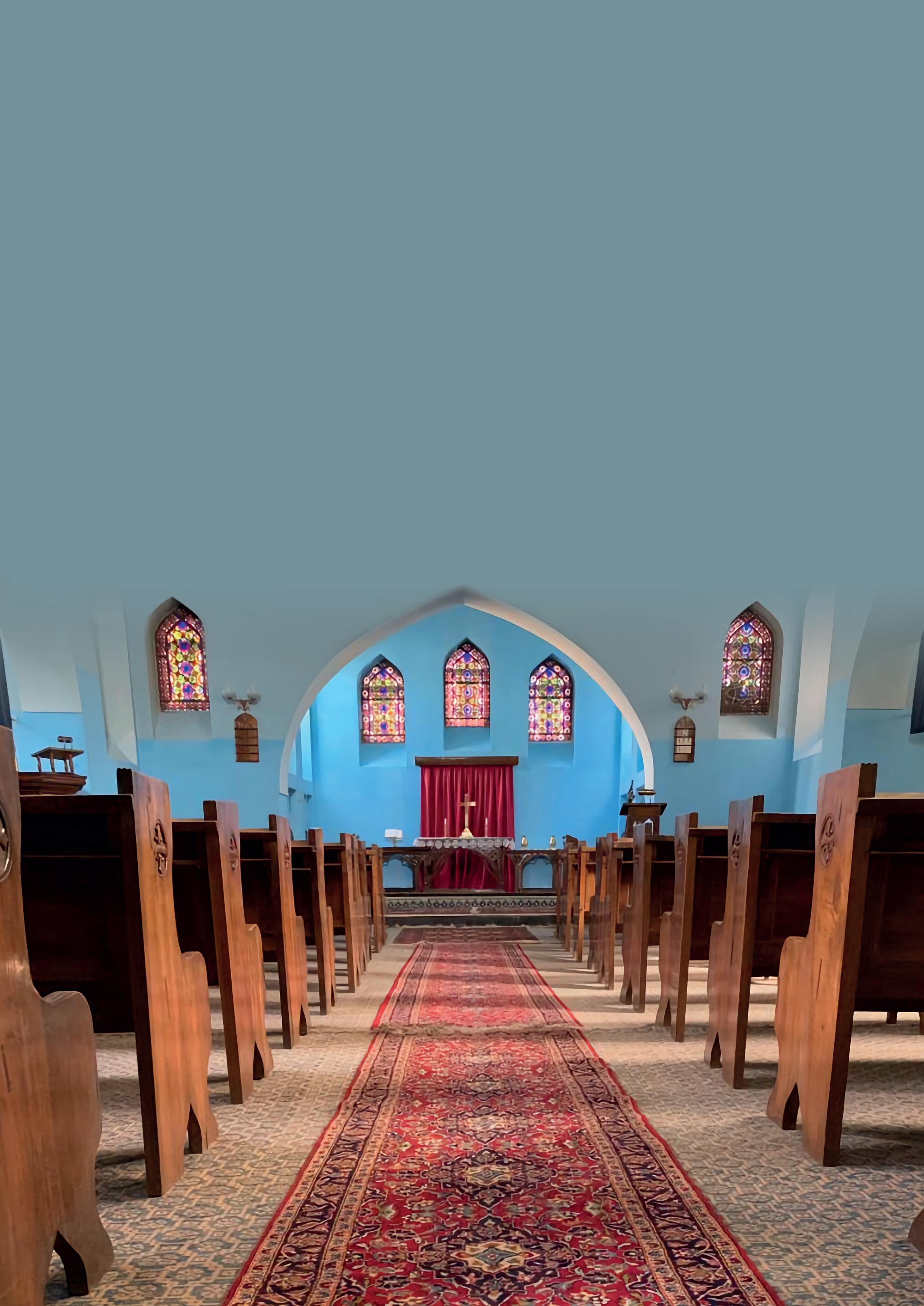RIGHTS VIOLATIONS AGAINST








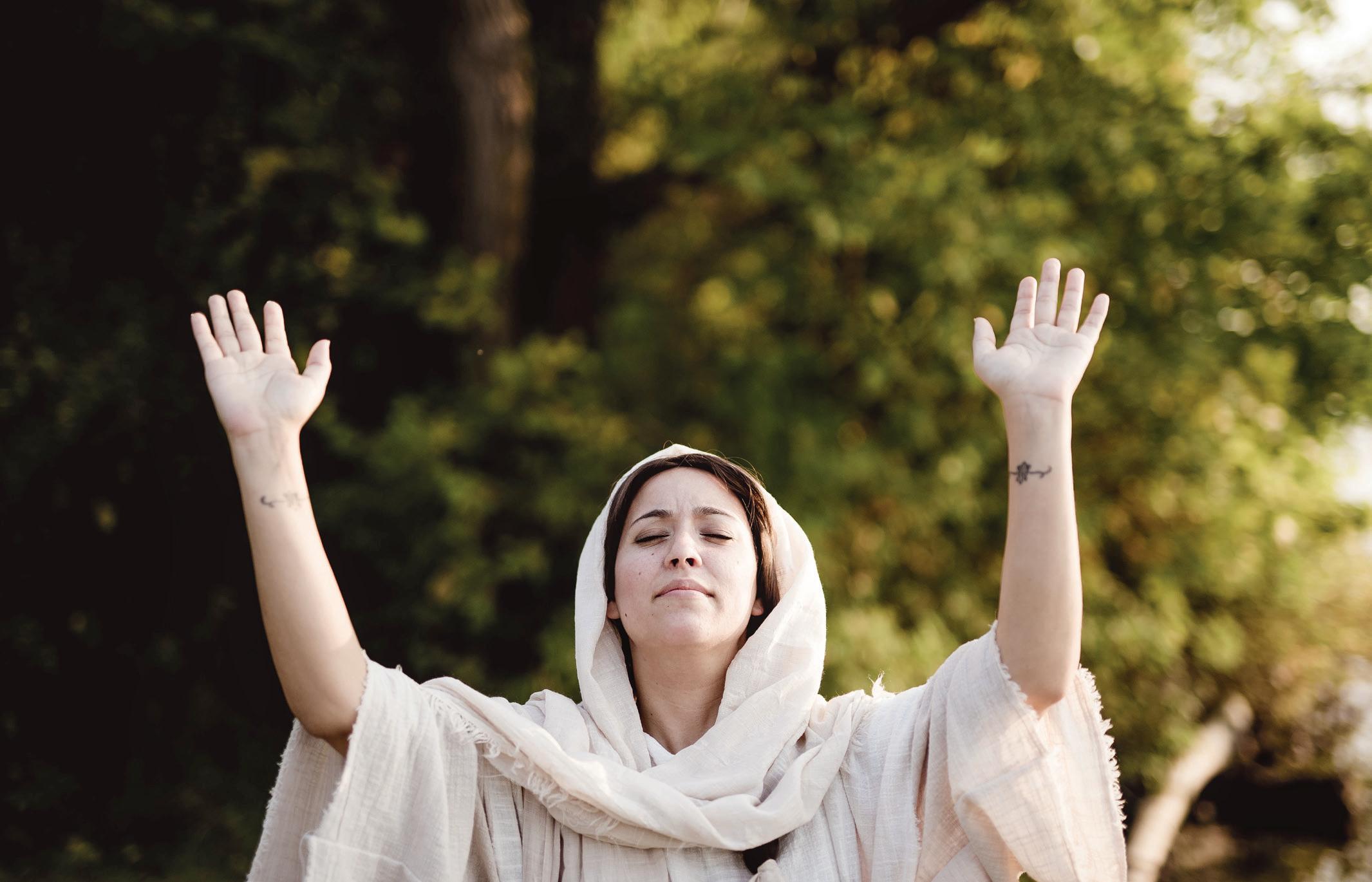










Widespread and persistent protests erupted in Iran following the death of 22-year-old Mahsa Amini in September after her arrest for wearing the hijab “improperly”, and her reported beating by members of the guidance patrol (“morality police”). The authorities tried to conceal the cause of her death, sparking a nationwide outcry that challenged state oppression, especially with regards to women. They responded violently to the demonstrations and restricted access to the Internet and social media, making the monitoring of rights violations more challenging.


Judiciary chief Gholam Hossein Mohseni-Ejei described the protests in religious terms, warning that “rioters” could be charged with “moharebeh” (enmity against God), “efsad fil-arz” (corruption on Earth) and “baghy” (armed rebellion) – all of which can carry the death penalty in Iran’s Sharia-based legal system. The US Commission on International Religious Freedom said it “deplored Iran’s pursuit of death sentences on religiously-grounded charges against protesters asserting their freedom of religion or belief”. In December two protestors were executed, and at least 100 others faced execution, according to Oslo-based Iran Human Rights
In a joint submission to the UN Human Rights Council ahead of an historic Special Session on Iran in November, Article18 and CSW argued that “at their core, the ongoing protests are a cry for freedom: the freedom of the Iranian people to live in a way that corresponds with their beliefs”. Earlier that month, Assyrian Christians were warned about participating in the protests, and 4050 youths were reprimanded by church leaders and told they faced arrest for showing support. Both the current and former Assyrian member of the Iranian parliament also condemned the protests, while statements by the main branches of the Armenian and Assyrian churches echoed the regime line that they were orchestrated by “enemies” and “foreigners” intent on disrupting Iran’s “national security”. But both Armenian and Assyrian Christians were arrested for participating in the protests.
In October, a fire broke out in Tehran’s Evin Prison in the wards holding political prisoners, including Christians. According to Reuters, the conflagration started after a riot-police unit entered the prison, banging on the metal doors of cells with batons and shouting “Allahu akbar!” (God is great). Some prisoners responded by shouting, “Death to [Ali] Khamanei!” (Iran’s Supreme Leader) and the riot police began firing live ammunition. It is not known how the fire then started. At least eight prisoners died from smoke inhalation, although the real figure is believed to be significantly higher. No Christians were among the victims, but several Christian prisoners were forced to take action to prevent the fire from spreading to their ward, and one family member called the event a “hellish” night

Five converts also reported that they had been arrested for participating in the protests and that they had been threatened with “apostasy” charges after their Christian faith came to light through examination of their phone records.
In December, the most famous Armenian church in Iran, Vank Church in Isfahan, cancelled its much anticipated Christmas and New Year celebrations. Although a banner hung from the church proclaimed the cancellation was due to repair work in preparation for the church’s registration as a UNESCO World Heritage Site, many viewed it as tacit support for the protesters. Those who attempted to congregate outside the church were told to “move on” by armed police. Many Iranian Christians inside and outside the country chose not to put up Christmas decorations in 2022 in solidarity with the protesters and out of respect for the hundreds killed by security forces.
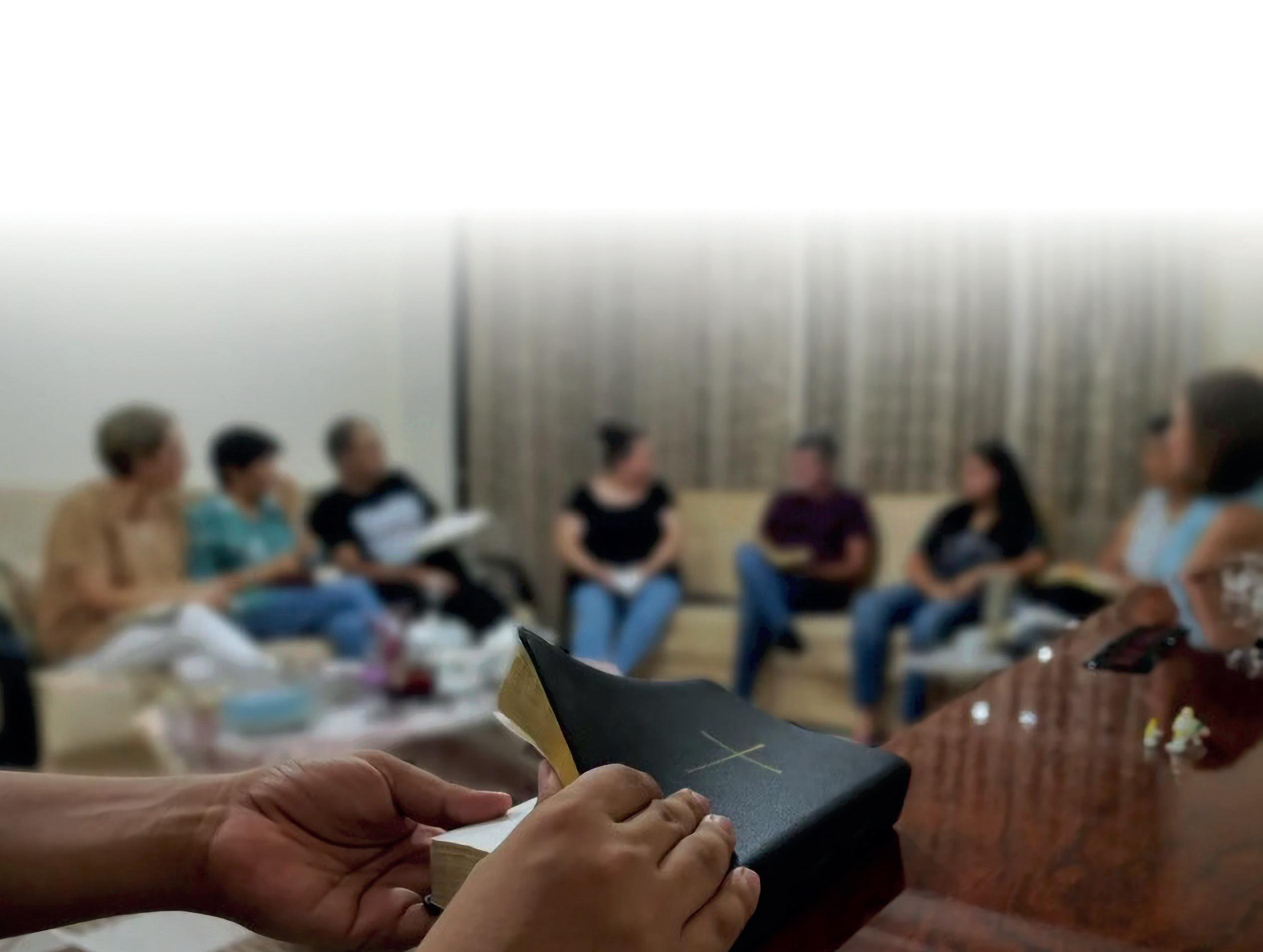
The Iranian regime fails to uphold the right to freedom of religion or belief as guaranteed under international law1. In August, eight United Nations experts expressed their alarm at the scale of repression against religious minorities, including Christian converts. The Christian community is subjected to monitoring, restrictions, and control, and Persian-speaking Christians2 face harassment and judicial procedure based on vague “propaganda” charges related to “national security”.
Churches remain closed to Persian-speaking Christians, obliging them to gather discreetly to express the communal aspect of their faith. These gatherings in private homes are usually known as “house-churches” and are subjected to raids by Iranian authorities. Only four Persian-speaking churches are still permitted to operate inside Iran, but these have not been allowed to reopen since the Covid pandemic. Furthermore, they are not permitted to take on new members, meaning their dwindling congregations number no more than 70 worshippers in total.
Raids on house-churches and the arrest and interrogation of their members are increasingly being conducted by the Islamic Revolutionary Guards Corps (IRGC). Correspondingly, there are more frequent reports of Christians suffering physical abuse during arrest and interrogation.

Christians charged with “acting against national security” are often allowed conditional release while their case is pending, though in many cases the length of their detention before release is significantly longer than stipulated by law, while bail demands are high, frequently entailing the submission of property title deeds. In 2022, more than $450,000 was demanded from Christians for bail.
Christian converts continued to be put under pressure when arrested or summoned for questioning and, threatened with prosecution, forced to sign commitments to refrain from having a Bible, meeting other Christians, or engaging in other Christian activities.
Notably in 2022, most Christians facing prosecution were charged under the newly amended Article 500 with “engaging in propaganda that educates in a deviant way contrary to the holy religion of Islam”. The application of Article 500 indicates the prevalence of surveillance of Iranian citizens regarding their religious beliefs. Those convicted under Article 500 were often given supplementary punishments, including fines and deprivation of social rights, in addition to custodial sentences.
1 Article 18 of the International Covenant on Civil and Political Rights (ICCPR), ratified by Iran in 1975.
2 In this report the term “Persian-speaking Christians” is used to denote either converts or ethnic Christians ministering to converts, as opposed to regular members of the “recognised” Armenian and Assyrian minorities in Iran.
In contrast to some encouraging reviews of cases and sentences by the Supreme Court in 2021, after which a few Christian converts were acquitted and the severity of some sentences mitigated, requests for the review of sentences handed down to Christians were mostly denied in 2022 and the appeal courts upheld convictions and failed to mitigate harsh sentences.
In the wake of the protests and fire in Evin Prison, two Christian converts were among nearly 2,000 prisoners pardoned and released in October, but it should be noted that such pardons, while welcome, do not address the original injustice of their sentencing and imprisonment and the government continues to regard rights and freedoms guaranteed in international law as crimes, including the right to freely adopt a religion of one’s choice, and to manifest one’s faith in community with others.
Even in rare instances where Christian converts have been cleared in court, they have continued to face harassment and, in some cases – in clear violation of their right to espouse a faith of their choice – have been summoned to attend Islamic “re-education” classes
Some Persian-speaking Christians were forced to flee the country in 2022, fearing prosecution, but the difficulties of seeking asylum in neighbouring countries make fleeing an unattractive option for most victims.
$450,000 EQUIVALENT OF DEMANDED FOR BAIL
2022 JUDICIAL RULINGS
14 CHRISTIANS SENTENCED TO:
PRISON, EXILE, TRAVEL BANS, SOCIAL DEPRIVATION, COMMUNITY SERVICE
76 MONTHS EXILE SENTENCES
963 MONTHS COMBINED PRISON SENTENCES ISSUED
Iran is home to a rich variety of religious and ethnic groups whose presence in the area is historically established. However, since the 1979 revolution the government has imposed a homogeneous Iranian identity with an Islamic Shi’a belief system, resulting in the repression of other groups, their culture, traditions and religious beliefs being considered a threat to the Islamic Republic and its values.
The first article of the Iranian constitution institutes a theocracy, with Article 12 establishing the Twelver Ja‘fari school of Shi’a Islam as the nation’s official religion. Accordingly, all Iranian laws must be derived from and be consistent with Islamic law.
Article 13 of the constitution states:
Aside from Zoroastrianism, Judaism and Christianity, no other religious minorities are recognised by law or afforded rights under the constitution. According to the government, the Christian community in Iran is restricted to ethnic Armenians and Assyrians and a small expatriate community. These churches are not, however, allowed to hold services or possess religious materials in Persian (the national language), nor are converts permitted to attend.

Christian converts from Islam are numerically the largest Christian community in Iran3, but they are not recognised by the state and are frequently targeted and persecuted by the authorities. Unable to attend existing churches belonging to the Armenian and Assyrian communities, converts either gather in informal meetings in private homes, known as “house-churches”, for prayer, worship, and Bible study, or are forced to remain isolated and disconnected from other Christians. In both cases, their freedom to express their faith publicly and in community with others is violated.
This treatment of the Christian community violates Iran’s obligations as a signatory of the International Covenant on Civil and Political Rights (ICCPR), which Iran ratified in 1975, without reservation.
3 In 2020 a survey of Iranians’ attitudes towards religion, conducted by a secular Netherlands-based research group, revealed that 1.5% of Iranians from a sample size of 50,000 self-identified as Christians. Based on this, researchers estimated there were around 1 million Christians in Iran overall. Ethnic Assyrian and Armenian Christians account for an estimated 100,000, the remainder – perhaps even as many as 1 million – being converts from Islam.

Zoroastrian, Jewish, and Christian Iranians are the only recognised religious minorities, who, within the limits of the law, are free to perform their religious rites and ceremonies, and to act according to their own canon in matters of personal affairs and religious education.
Everyone shall have the right to freedom of thought, conscience, and religion. This right shall include freedom to have or to adopt a religion or belief of his choice, and freedom, either individually or in community with others, and in public or private, to manifest his religion or belief in worship, observance, practice, and teaching.
No-one shall be subject to coercion which would impair his freedom to have or to adopt a religion or belief of his choice.
Freedom to manifest one’s religion or beliefs may be subject only to such limitations as are prescribed by law and are necessary to protect public safety, order, health or morals or the fundamental rights and freedoms of others.
The States Parties to the present Covenant undertake to have respect for the liberty of parents and, when applicable, legal guardians to ensure the religious and moral education of their children in conformity with their own convictions.
The promotion of any faith besides Shi’a Islam is regarded as criminal activity, hence Christians face criminal procedure if they are assumed to have promoted the Christian faith among Persians. In addition, Christian converts are liable to be treated as criminals both on account of their conversion and by practising their right under Article 18.1 of the ICCPR to manifest their religion “in community with others”. Christians are typically penalised under the following provisions of the Islamic Penal Code:
Anyone, with any ideology, who establishes or directs a group, society, or branch, inside or outside the country, with any name or title, that constitutes more than two individuals and aims to perturb the security of the country, if not considered as “mohareb”4, shall be sentenced to two to 10 years’ imprisonment.
Anyone who joins, as a member, any of the groups, societies, or branches aforementioned in Article 498, shall be sentenced to three months to five years’ imprisonment, unless it is proved that he had been unaware of its aims.
Anyone who insults Iranian ethnicities or divine religions or Islamic schools of thought recognised under the Constitution, in the real or virtual sphere, with the intent to cause violence or tensions in the society, shall be sentenced to up to five years’ imprisonment, or 10 years if they received financial or organisational help from outside the country.

Anyone who engages in any type of propaganda against the Islamic Republic of Iran, or in support of opposition groups and associations, shall be sentenced to three months to one year of imprisonment.
498 2 2
Anyone who engages in propaganda that educates in a deviant way contrary to the holy religion of Islam, through mind-control or psychological indoctrination, or making false claims, shall be sentenced to up to five years’ imprisonment, or 10 years if they received financial or organisational help from outside the country.
Anyone who insults the sacred values of Islam or any of the Great Prophets or [12] Shi’ite Imams or the Holy Fatima [Muhammad’s daughter], if considered as “Saab ulnabi” [defamation of the Prophet], shall be executed; otherwise, they shall be sentenced to one to five years’ imprisonment.
The increasing involvement of the IRGC in conducting raids on house-churches, making arrests and interrogating “suspects” was noted in last year’s report. Previously, state action against Christians was almost exclusively carried out by agents of the Ministry of Intelligence. When agents of the IRGC conduct arrests, they are notably less well-informed about evangelical Christianity and are more prone to be disrespectful or show violent behaviour, both at the time of the arrest and during interrogation. In 2022 a male Christian convert was reportedly5 sexually assaulted during interrogation by IRGC agents. The conditions of detainees facing interrogation in IRGC offices are also substandard and the bail demands for conditional release often higher.

Since Christians typically face charges of “propaganda” or “acting against national security”, their cases are usually heard by Revolutionary rather than criminal courts. Lawyers representing Christians in court have reported on numerous occasions that the intelligence branch of the IRGC interferes with the legal process and demands more severe punishments for Christians than the courts consider appropriate.
Another trend that started with the amendments to Articles 499 and 500 was the consistent application of Article 500 to prosecute Christians for “engaging in propaganda that educates in a deviant way contrary to the holy religion of Islam”. The amendments signed into law in 2021 have facilitated the persecution of Christians and other religious adherents as the interpretation of “deviant propaganda contrary to Islam” is left to the judge’s discretion.
Iranian Christians prosecuted under these “propaganda” charges are often subjected to lengthy custodial sentences and supplementary punishments such as fines or deprivation of various rights.
Judges and particular branches of a Revolutionary Court are carefully selected to ensure Christians will be tried harshly, as exemplified in 2022 with the repeated choice of Branch 26 of the Revolutionary Court of Tehran, headed by Judge Iman Afshari. According to IranWire, “Judge Afshari is very interested in meting out ‘supplementary punishments’ to those he convicts… These extra penalties [have] included such things as a ban on the use of smart electronic devices, travel bans, and internal exile.” The sentences he has handed down to Christians concur with this assessment.
In court, Judge Afshari has behaved insultingly towards Christians, ridiculing their faith, and has pressured converts to recant, promising lesser sentences and threatening harsher sentences if they refuse to comply. He has also intimidated lawyers defending Christians in court.
Several Christians were given harsh prison sentences and supplementary punishments by Judge Afshari in 2022. IranianArmenian Anooshavan Avedian was sentenced to 10 years in prison and deprived of social rights for 10 years based on the judge’s interpretation of Article 500 regarding his church activities.



Convicted of “acting against national security by promoting ‘Zionist’ Christianity,” another IranianArmenian, Joseph Shahbazian, was sentenced by Judge Afshari to 10 years in prison plus a twoyear term in exile in a remote province in the southeast of Iran following his incarceration, and a two-year ban on travelling abroad or membership of any social or political group.
Christian converts Sara Ahmadi and Homayoun Zhaveh, who has advanced Parkinson’s disease, were summoned in August to serve sentences handed down by Judge Afshari in 2020. Sara was sentenced to 11 years in prison (reduced to eight years on appeal) and Homayoun to two years for their roles in a house-church. As supplementary punishments, they were also banned from foreign travel or membership of any social or political group for two years after their release and were given six months’ community service at a centre for people with learning disabilities.
Meanwhile, following some carefully considered decisions from the Supreme Court in 2021, which overturned the sentences of several Christians and reduced the severity of sentencing for others, convicted Christians were encouraged to appeal their sentences in 2022. However, the appeal judges generally failed to review the sentences with due diligence, and upheld convictions and sentences.
A lawyer also reported to Article18 that intelligence agencies were making sure no more Christian cases were sent to the Supreme Court branch responsible for the acquittal in 2021 of nine Christian converts.

There was a marked increase in 2022 of Christian converts being obliged to attend “re-education” classes to pressure them to recant their Christian faith and return to Islam. Most were not publicly reported, but in one public case, in January, a group of 10 converts from Dezful – eight of whom had been charged, but cleared of any crime in the courts – were summoned by IRGC agents to attend 10 sessions of “re-education” classes with Islamic clerics as they had been “misled”. There were many more instances that were not made public, in what seems to have become a widespread practice.
Amnesty International noted in its 2021 report on Iran that “dissidents and journalists based abroad faced intensified threats, and their families in Iran were interrogated and/or arbitrarily detained in reprisal for their work”. The Washington Post also reported on the practice in December 2022, and this harassment of family members also applies to Iranian Christians active outside Iran, though for reasons of security they were not made public.
Six expatriate Iranian Christians reported in 2022 that multiple family members in Iran had been summoned for questioning and harassed regarding their relative’s activities abroad. In one case, this included the 95-year-old father of the individual under investigation. The family members were typically told that if they persuaded their relatives to return to Iran, the potential judicial sentences they faced for their Christian activities would be reduced.
The response of Christians varies, but increasingly Persian-speaking Christians are publicly standing up to pressure and asking for their rights to be respected. An example of this is the request by Persian-speaking Christians for a space where they can gather to worship without fearing prosecution for “acting against national security” or engaging in “propaganda”. This led to the #Place2Worship campaign, begun in 2021 and which continues to be promoted from both inside and outside Iran. Iranian authorities have yet to respond publicly to this demand.

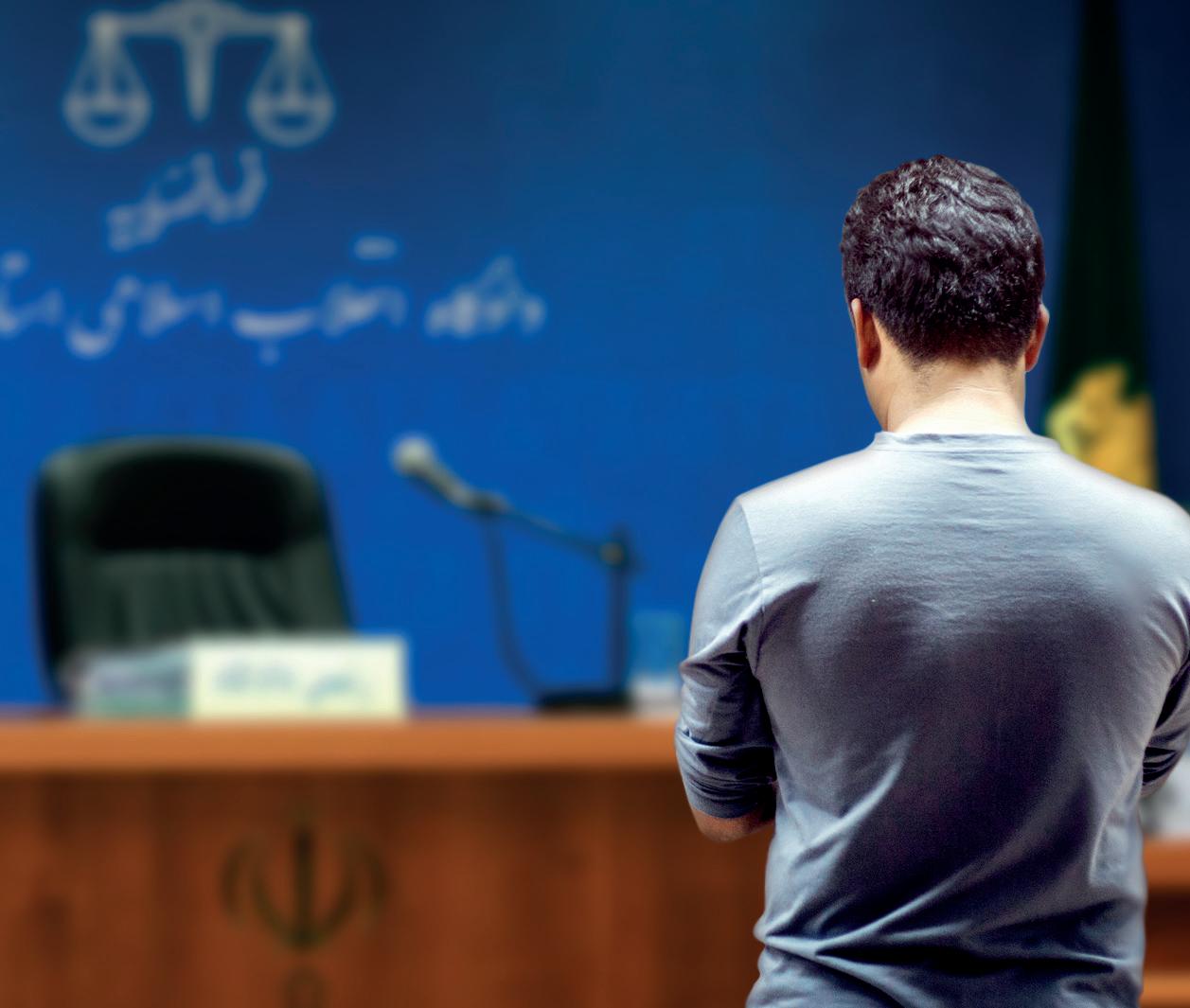
Arrested: July 2014
Charge: “Propagating Christianity”
Article: 500
Sentence: 6 years
Detained: January 2022
Prison: Anzali
Matthias was one of nine “Church of Iran”6 members released from five-year prison sentences at the start of 2022, after a Supreme Court judge ruled that attending house-churches and promoting Christianity should not have been considered “actions against national security” – a ruling upheld by a court of appeal in February. But by this time, Matthias was already back in prison, having been re-arrested in January after a different Supreme Court judge ruled that he should never have been acquitted of a previous sentence for “propagating Christianity”. Matthias was therefore taken back to Anzali Prison. In July, Matthias was given leave from prison, which was later extended, but in December he was re-arrested at a Christmas gathering in a private home in Bandar Anzali. Two other church members, named Amir and Masoud, were also arrested that evening, and all three men were transferred to Lakan Prison in Rasht. Before his transfer to prison, Matthias was taken to his home, which was searched and his personal items, including laptops and anything connected to Christianity, were confiscated.


Arrested: February 2022
Charge: “Propaganda against the state”
Article: 500
Babak and Behnam were also among the nine released after the November 2021 Supreme Court ruling, but like Matthias they were soon handed fresh charges – in February – of “propaganda against the state”. They were arrested again in May, and the case against them remains open.
Shahrooz Eslamdoust, Mehdi Khatibi, Hossein Kadivar


Mohammad Vafadar, Khalil Dehghanpour & Kamal Naamanian
Arrested: January / February 2019

Charge: “Acting against national security” “Promoting ‘Zionist’ Christianity”
Article: 498, 500
Sentence: 5 years
Detained: July/October 2019
Prison: Evin, Tehran

Released: January 2022
Shahrooz,

and
were the other six “Church of Iran” members released in January after the November 2021 Supreme Court ruling.

Milad Goodarzi, Amin Khaki & Alireza Nourmohammadi

Arrested: November 2020
Charge: “Propaganda that educates in a deviant way contrary to the holy religion of Islam”
Article: 500 (2)
Sentence: 3 years
Detained: November 2021
Prison: Karaj Central
Milad, Amin and Alireza were the first converts to be charged and sentenced under the amended Article 500, back in 2021, and they remain in prison. In January 2022, they were given a belated 10 days’ leave from prison after enquiring why they were not included in the publicised mass furlough of Christian prisoners over Christmas 2021.






Arrested: December 2018
Charge: “Propaganda against the regime”
Article: 500
Sentence: 1 years
Detained: October 2019
Prison: Evin, Tehran
Released: Shahid Kachooei, Karaj

Mahrokh, who has already served one prison sentence for “propaganda against the regime”, was summoned again to face the same charge in January, before, eventually, being told that a mistake had been made and she should not have been summoned. She was, however, warned not to engage in any Christian activities, “especially online”.

Arrested: June 2016
Charge: “Acting against national security”
Article: 498
Sentence: 10 years
Detained: January 2018
Prison: Evin, Tehran
Released: October 2022
Nasser was finally released in October after nearly five years in prison and numerous pleas for a retrial or parole
His release came just two days after a fire in Evin Prison, when Christian prisoners of conscience, including in Ward 8, where Nasser was incarcerated, were forced into desperate action to prevent the fire from spreading. Gunfire was also heard, while projectiles which caused explosions were hurled into the prison from outside. In February, Nasser was among several Christian prisoners in Evin to fall ill with suspected Covid-19 symptoms after an outbreak in his ward. He was also hospitalised in June after losing hearing in his left ear, which affected his mobility and led to several falls. Nasser’s elderly mother, who had not been able to visit her son during his imprisonment and had pleaded for her son’s release, died one month after they were reunited.
Arrested: January 2019
Charge: “Acting against national security”
“Forming an illegal evangelical Christian group”
Article: 498
Sentence: 10 years / 5 years
Detained: January 2018
Prison: Evin, Tehran
Yasser was given five days’ leave from prison – later extended to 10 days – in January after the death of his only child. However, by the time Yasser’s leave began, his son’s funeral had already taken place.
Ramin Hassanpour, Saeede (Kathrin) Sajadpour
Sakine (Mehri) Behjati & Hadi (Moslem) Rahimi
Sentence: 5 years / 2 years / 2 years / 4 years
Detained: January / April 2022
Prison: Lakan, Rasht / Evin, Tehran
Moslem handed himself in to Evin Prison to begin his four-year sentence in January, so the property deed submitted by a friend to secure his bail would be released. The other three were summoned to begin their sentences in February. Meanwhile, Moslem was another to fall ill with suspected Covid-19 that month following an outbreak in his ward. Mehri began serving her two-year sentence in April and was later granted a transfer to Lakan Prison in her home city of Rasht. Mehri was later permitted to take part in a prison scheme that allows her to spend most of her time outside prison, either working or with her children, after initially being denied the opportunity.
Arrested: July 2019
Charge: “Acting against national security”
“Gathering and collusion against the state”
“Membership of an illegal organisation”
Article: 499
Sentence: 1 year / 2 year’s exile
Detained: February 2021
Prison: Bushehr Central
Released: January 2022
Habib and Sasan were released from prison at the conclusion of their sentences, but Sasan is now living in internal exile away from his home in Bushehr, and is also prohibited from working in his specialist profession – the hospitality sector.







Arrested: December 2021
Released: January 2022
These two brothers were detained incommunicado for more than a month after their arrest at a Christmas 2021 gathering near Isfahan. Their family members, not knowing which agency was responsible for their arrest, were threatened and mocked by the local officials they spoke to as they anxiously sought information. The brothers were eventually released in early 2022, but it remains unclear whether they had to pay bail or were released without charge.
Esmaeil Narimanpour, Alireza Varak-Shah
Mohammad Ali (Davoud) Torabi

Mohammad Kayidgap, Hojjat Lotfi Khalaf

Alireza Roshanaei Zadeh








Masoud Nabi & Mohsen Saadati Zadeh
Arrested: April 2021
Charge: “Propaganda against the Islamic Republic”
Article: 500
These eight men were among 10 Christian converts who were called in January and told they must undertake 10 “re-education” classes in the Islamic faith, despite being cleared of any wrongdoing by a judge in November 2021. Some of the Christians attended, as instructed by the IRGC. Those who did not were intimidated and made to give a reason. They were told they had been “misled” and that the cleric would “guide them back onto the right path”.
Ahmad Sarparast, Morteza Mashoodkari & Ayoob Poor-Rezazadeh
Arrested: September 2021
Charge:
“Propaganda and educational activities for deviant beliefs contrary to the holy Sharia”
“Connections with foreign leaders”
Article: 500 (2)
Sentence: 5 years (reduced to 2 ½ years for Morteza)
Detained: May 2022
Prison: Lakan, Rasht
These three men were the second trio of “Church of Iran” members convicted under the amended Article 500. They were charged in February, sentenced in April, and detained in May, before the outcome of their appeal, which was rejected in June. In July, they were told they faced a second trial on identical charges, but the Rasht Revolutionary Court cleared them of these charges in November. Later in November, for unspecified reasons Morteza’s sentence was reduced by half. Their place of detention was also set on fire in October, and several prisoners were killed during clashes with guards. All three men were given short furloughs from prison in November/December.
Yousef Nadarkhani & Zaman (Saheb) Fadaie
Arrested: May 2016
Charge: “Acting against national security by propagating house-churches and promoting ‘Zionist’ Christianity”
Article: 498, 500
Sentence: 10 years (reduced to 6)
Detained: July 2018
Prison: Evin, Tehran
Yousef and Saheb were also among the prisoners who fell ill with Covid-19 symptoms in February after an outbreak in their ward. Meanwhile, Saheb’s request for leave from prison went unanswered. Yousef was permitted his first visit home in nearly four years’ detention in April, and then another in November, having previously also been denied leave without explanation.
Fariba Dalir


Arrested: July 2021
Charge: “Acting against national security by establishing and leading an Evangelical Christian church”
Article: 498
Sentence: 2 years
Detained: April 2022
Prison: Evin, Tehran
Released: October 2022
Fariba began serving her sentence on Easter Saturday. She was unexpectedly “pardoned” and released in October, the day after Nasser Navard Gol-Tapeh’s surprising release, and in the wake of the fire at the prison two days earlier.
Rahmat Rostamipour

Arrested: April 2022
Charge: “Engaging in educational activities contrary to the holy religion of Islam by establishing house-churches”
Article: 500 (2)
Sentence: 24 million toman ($750) fine 5 years’ deprivation of social rights
Rahmat was arrested at his home in Bandar Anzali by agents from the Ministry of Intelligence, who also confiscated personal belongings, including Bibles. The agents made it clear they also intended to arrest Rahmat’s wife, Azar, but refrained from doing so because the raid brought on a panic attack in the couple’s teenage daughter. However, Azar was summoned to a Ministry of Intelligence office the following day, and was sent home after hours of interrogation. Rahmat’s verdict was issued a month later. At least three other Christians were arrested as part of the same case, but their arrests were not publicly reported.
Anooshavan Avedian, Maryam (Khadijeh) Mohammadi & Abbas Soori
Arrested: August 2020
Charge:
“Establishing and leading an illegal group with the aim of disrupting the security of the country through educational and propaganda activities contrary to and disturbing to the holy religion of Islam, through the dissemination of false claims”
Article: 498, 500 (2)
Sentence: 10 years, Deprivation of social rights/Fine 2-year ban on membership of any group 2-year travel ban, 2 years’ exile
10 yrs
Iranian-Armenian Christian Anooshavan faces 10 years in prison and a subsequent 10-year deprivation of social rights, after his sentencing in April. Christian converts Maryam and Abbas were given a range of non-custodial punishments. Their appeals were rejected in May, although Abbas and Maryam’s 10-year deprivation of social rights was lifted and their fines for being in possession of satellite receivers were reduced from 50m tomans ($2,000) to 6m ($190). Their requests for a retrial were rejected


Mohammad Reza (Youhan) Omidi
Arrested: May 2016
Charge: “Acting against national security by propagating house-churches and promoting ‘Zionist’ Christianity”
Article: 498, 500
Sentence: 10 years (reduced to 2), 2 year’s exile
Detained: July 2018
Prison: Evin, Tehran
Released: June 2022
Youhan finally returned home to his family in June, after two years in prison and two more in exile in the southern city of Borazjan, more than 1,000km from his home in Rasht.
Joseph Shahbazian, Malihe Nazari, Mina Khajavi
Salar Eshraghi Moghadam, Somayeh (Sonya) Sadegh Masoumeh Ghasemi & Farhad Khazaee
Arrested: June/July 2020
Charge: "Acting against national security by promoting ‘Zionist’ Christianity"
Article: 500
Sentence: 10 years/6 years/6 years 4 years/4 years/1 year/1 year
Detained: August 2022
Iranian-Armenian Christian Joseph has been serving a 10-year prison sentence since August, and Christian convert Malihe a six-year sentence. Fellow convert Mina was also summoned to serve her six-year sentence in August, but then sent home until she had recovered from a broken leg. The four other converts in the case were sentenced to between one and four years in prison but were permitted to pay fines instead. They were sentenced in June, and their appeals rejected in August.





Arrested: June 2022
Charge: “Propaganda against the state through proselytising Christianity”,“Defamation of Islam’s sacred beliefs”
Articles: 500, 513
Prison: Mashhad

Ghomalreza was one of four Christian converts arrested at a house-church gathering in Neyshabur. The names of the other three – two women and another man – were not made public. At least another eight Christians were also present at the meeting and though they were not detained by the arresting agents from the IRGC, they were told to expect a summons for further questioning and forced to sign pledges to refrain from gathering with other Christians. Bibles and mobile phones were among the items confiscated from the church members. The detained Christians were eventually released on bail in September. Gholamreza’s bail was equivalent to over $20,000. In December, Mohabat News reported that the property confiscated from Gholamreza had yet to be returned.


Mohammad Golbaz

Arrested: July 2022
Charge: “Propaganda against the state”
Article: 500
Mohammad was arrested at his motorcycle repair shop by more than a dozen plainclothes intelligence agents, then transferred to an unknown location and held incommunicado until he was allowed to make a short telephone call to his parents four days later. The arresting agents had initially searched Mohammad’s parents’ home, believing him to be there, and confiscated a framed picture of Jesus. On enquiring at the local prosecutor’s office, relatives were told only that he was an “apostate” and would be held “for a while”. He was eventually released on bail equivalent to $45,000 in September. In October, he was officially indicted under the amended Article 500.

Sara Ahmadi & Homayoun Zhaveh
Arrested: June 2019
Charge: “Leadership/membership of an illegal organisation [house-church]”
Article: 498/499
Sentence: 11 years (reduced to 8) / 2 years
Detained: August 2022
Prison: Evin, Tehran
Parkinson’s sufferer Homayoun and his wife and primary carer Sara were detained in August, more than a year after their last summons to prison ended with them being sent back home. They were sentenced in November 2020 and their appeals were rejected in December 2020, though Sara’s sentence was reduced. They are also banned from foreign travel or membership of any social or political group for two years after their release and must do six months’ community service at a centre for people with learning disabilities.
Bianka Zaia
Arrested: November 2022
Charge: “Propaganda against the state through proselytising Christianity”
Article: 500
Bianka, an Iranian-Assyrian, was arrested in November by plainclothes officers who raided her home and confiscated items including her Bible and other Christian objects. She was then taken to Evin Prison and reportedly held in Ward 209, reserved for political prisoners, until her release on bail of 500 million tomans ($12,500) on New Year’s Eve. Her bail was initially set at four times higher, but later reduced. Bianka is understood to have posted messages on her Instagram account in support of the protests. Alongside charges related to the protests, Bianka was reportedly charged with “propaganda against the state through proselytising Christianity”.


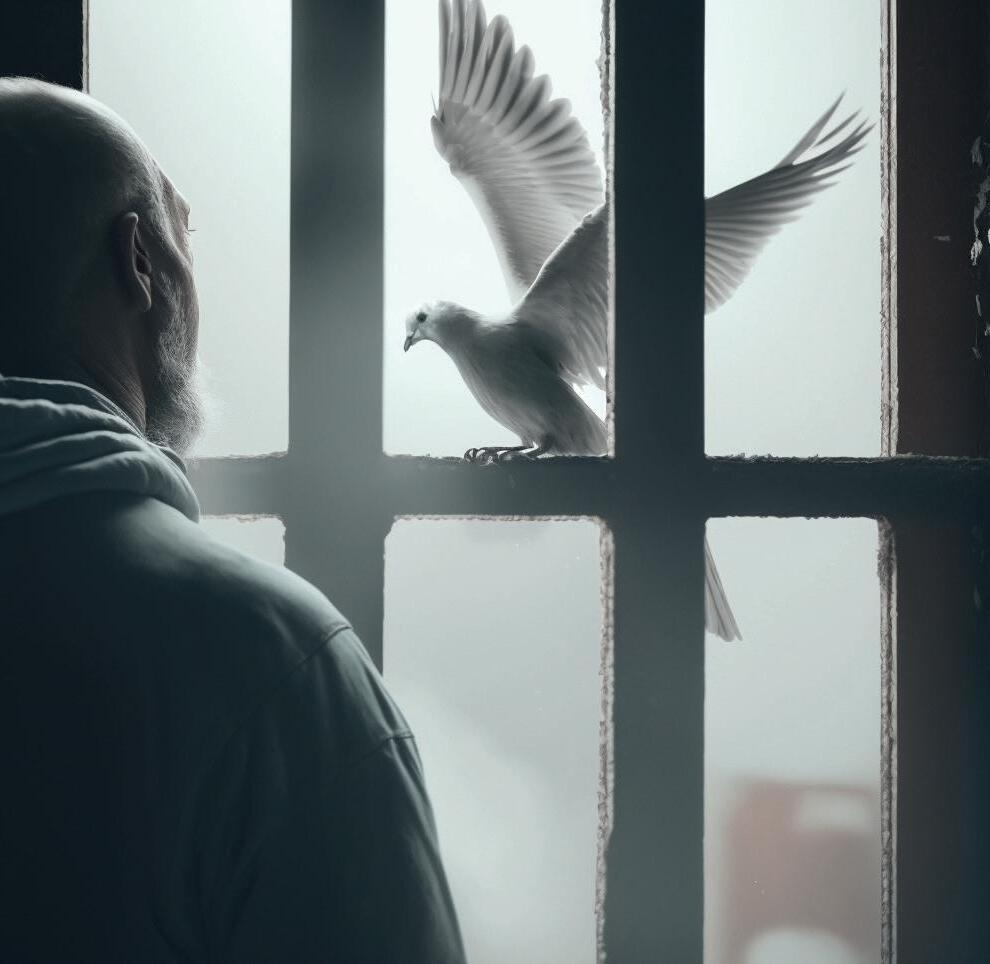
NAME LOCATION DETENTION BEGAN RELEASED SENTENCE
Nasser Navard Gol-Tapeh Evin Prison, Tehran Jan 2018 Oct 2022 10 years for “acting against national security through the formation and establishment of an illegal church organisation in his home”
Yousef Nadarkhani Evin Prison, Tehran July 2018 - 10 years (reduced to 6) + 2 years’ exile for “acting against national security” including “propagating house-churches” and “promoting ‘Zionist’ Christianity”
Zaman (Saheb) Fadaie Evin Prison, Tehran July 2018 - 10 years (reduced to 6) + 2 years’ exile for “acting against national security” including “propagating house-churches” and “promoting ‘Zionist’ Christianity” + 80 lashes for “drinking (Communion) wine”

Mohammad (Shahrooz) Eslamdoust Evin Prison, Tehran July 2019 Jan 2022 5 years for “acting against national security”. Acquitted by Supreme Court in Nov 2021, upheld by Appeal Court in Feb 2022
Babak Hosseinzadeh Evin Prison, Tehran July 2019 Jan 2022 5 years for “acting against national security”. Acquitted by Supreme Court in Nov 2021, upheld by Appeal Court in Feb 2022
Mehdi Khatibi Evin Prison, Tehran July 2019 Jan 2022 5 years for “acting against national security”. Acquitted by Supreme Court in Nov 2021, upheld by Appeal Court in Feb 2022
Behnam Akhlaghi Evin Prison, Tehran July 2019 Jan 2022 5 years for “acting against national security”. Acquitted by Supreme Court in Nov 2021, upheld by Appeal Court in Feb 2022
Hossein Kadivar Evin Prison, Tehran June 2020 Jan 2022 5 years for “acting against national security”. Acquitted by Supreme Court in Nov 2021, upheld by Appeal Court in Feb 2022
Khalil Dehghanpour Evin Prison, Tehran June 2020 Jan 2022 5 years for “acting against national security”. Acquitted by Supreme Court in Nov 2021, upheld by Appeal Court in Feb 2022
Kamal Naamanian Evin Prison, Tehran June 2020 Jan 2022 5 years for “acting against national security”. Acquitted by Supreme Court in Nov 2021, upheld by Appeal Court in Feb 2022
Mohammad Vafadar Evin Prison, Tehran June 2020 Jan 2022 5 years for “acting against national security”. Acquitted by Supreme Court in Nov 2021, upheld by Appeal Court in Feb 2022
Mehdi Akbari Evin Prison, Tehran June 2020 - 10 years for “acting against national security by forming a house-church”

Mehdi Roohparvar Evin Prison, Tehran June 2020 - 5 years for “acting against national security by forming a house-church”
Mohammad Reza (Youhan) Omidi Borazjan Aug 2020 June 2022 2 years’ exile as part of a sentence including 2 years’ prison (reduced from 10) for “acting against national security through propagating housechurches and promoting ‘Zionist’ Christianity”
Sasan Khosravi Bushehr Central Prison Feb 2021 Feb 2022 Jan 2022 -
1 year prison + 2 years’ exile for “propaganda against the regime”
Habib Heydari Bushehr Feb 2021 Jan 2022 1 year for “propaganda against the regime”
Amin Khaki Karaj Nov 2021 - 5 years (reduced to 3) for “engaging in propaganda that educates in a deviant way contrary to the holy religion of Islam”
Milad Goodarzi Karaj Nov 2021 - 5 years (reduced to 3) for “engaging in propaganda that educates in a deviant way contrary to the holy religion of Islam”
Alireza Nourmohammadi Karaj Nov 2021 - 5 years (reduced to 3) for “engaging in propaganda that educates in a deviant way contrary to the holy religion of Islam”
Abdolreza Ali (Matthias) Haghnejad
Evin/Anzali Prison Jan 2022 - 6 years for “acting against the security of the country by forming a group and propagating Christianity outside the church and in the house-church and giving information to the enemies of Islam.” Charges dropped in 2014 revived by judge
Hadi (Moslem) Rahimi Evin Prison, Tehran Jan 2022 - 4 years for "acting against national security by attending house-churches and spreading ‘Zionist’ Christianity”
Sakine (Mehri) Behjati Lakan Prison, Rasht April 2022 - 2 years for "acting against national security by attending house-churches and spreading ‘Zionist’ Christianity”
Ayoob Poor-Rezazadeh Lakan Prison, Rasht May 2022 - 5 years for “engaging in propaganda and educational activities for deviant beliefs contrary to the holy Sharia”
Morteza Mashoodkari Lakan Prison, Rasht May 2022 - 5 years (reduced to 2½) for “engaging in propaganda and educational activities for deviant beliefs contrary to the holy Sharia”
Ahmad Sarparast Lakan Prison, Rasht May 2022 - 5 years for “engaging in propaganda and educational activities for deviant beliefs contrary to the holy Sharia”
Sara Ahmadi Evin Prison, Tehran Aug 2022 - 11 years (reduced to 8) + 2-year travel ban + 2-year ban on membership of any group + 6 months’ community service for “organisation of an illegal group [house-church]”
Homayoun Zhaveh Evin Prison, Tehran Aug 2022 - 2 years + 2-year travel ban + 2-year ban on membership of any group + 6 months’ community service for “membership of an illegal organisation [housechurch]”
Joseph Shahbazian Evin Prison, Tehran Aug 2022 - 10 years + 2 years’ exile + 2-year travel ban + 2-year ban on membership of any group for "acting against national security by promoting ‘Zionist’ Christianity"
Malihe Nazari Evin Prison, Tehran Aug 2022 - 6 years for "acting against national security by promoting ‘Zionist’ Christianity”
The government of the Islamic Republic of Iran has an obligation under national and international law to respect, protect and fulfil the right to freedom of religion or belief. We therefore call on the government of Iran to:
Uphold the right to freedom of religion or belief for every citizen, regardless of their ethnic or linguistic group, including converts from other religions, thereby amending Article 13 of the constitution to recognise fully the freedom of religion or belief of all as envisaged by Article 18 of the ICCPR, to which Iran is a State Party, without reservation.
Release immediately and unconditionally all Christians detained on charges related to their faith or religious activities.
Drop all pending charges against Christians related to church activities deemed lawful by the Iranian Supreme Court.
Cease the criminalisation of house-church organisation and membership, allowing Christians of all ethnic backgrounds to worship freely and collectively.
Return places of worship, properties and materials confiscated from Christians and other religious minorities under “national security”-related charges.
Reopen churches closed under measures imposed during the Covid pandemic.
Cease using provisions such as Articles 498, 499, 500 and 513 of the Penal Code and Article 167 of the Iranian constitution to unjustly detain minority-faith adherents.
Guarantee the right to counsel to all individuals charged with “national security”-related crimes as well as the right to select a lawyer of their choice, therefore repealing the Note to Article 48 of Iran’s Criminal Procedures Regulations.
Grant access to the UN Special Rapporteur on the human rights situation in Iran to thoroughly investigate Iran’s compliance with international law on human rights.
Cooperate fully with the fact-finding mission tasked by the UN Human Rights Council to investigate alleged human rights violations related to the protests.
We thank the UN Special Rapporteur on human rights in Iran and the UN Special Rapporteur on freedom of religion or belief for their vital contributions raising awareness about the ongoing mistreatment of Christians and other religious minorities in Iran in reports, and request that the violations against the Christian community in Iran be consistently mentioned in reporting.
We call on members of the international community to assist in holding Iran accountable forensuring and facilitating the right to freedom of religion or belief for all its citizens by highlighting this principle during political and/or economic discussions with, or concerning, Iran.
We also call on countries hosting Iranian Christians who are seeking asylum to assess their cases with due diligence and recognise that under present circumstances, if they are returned, the Iranian authorities are likely to continually harass and pursue individuals and proceed with prosecution.
Scan this QR code with your phone to access the digital version of the report which includes extra links to sources for this report.
